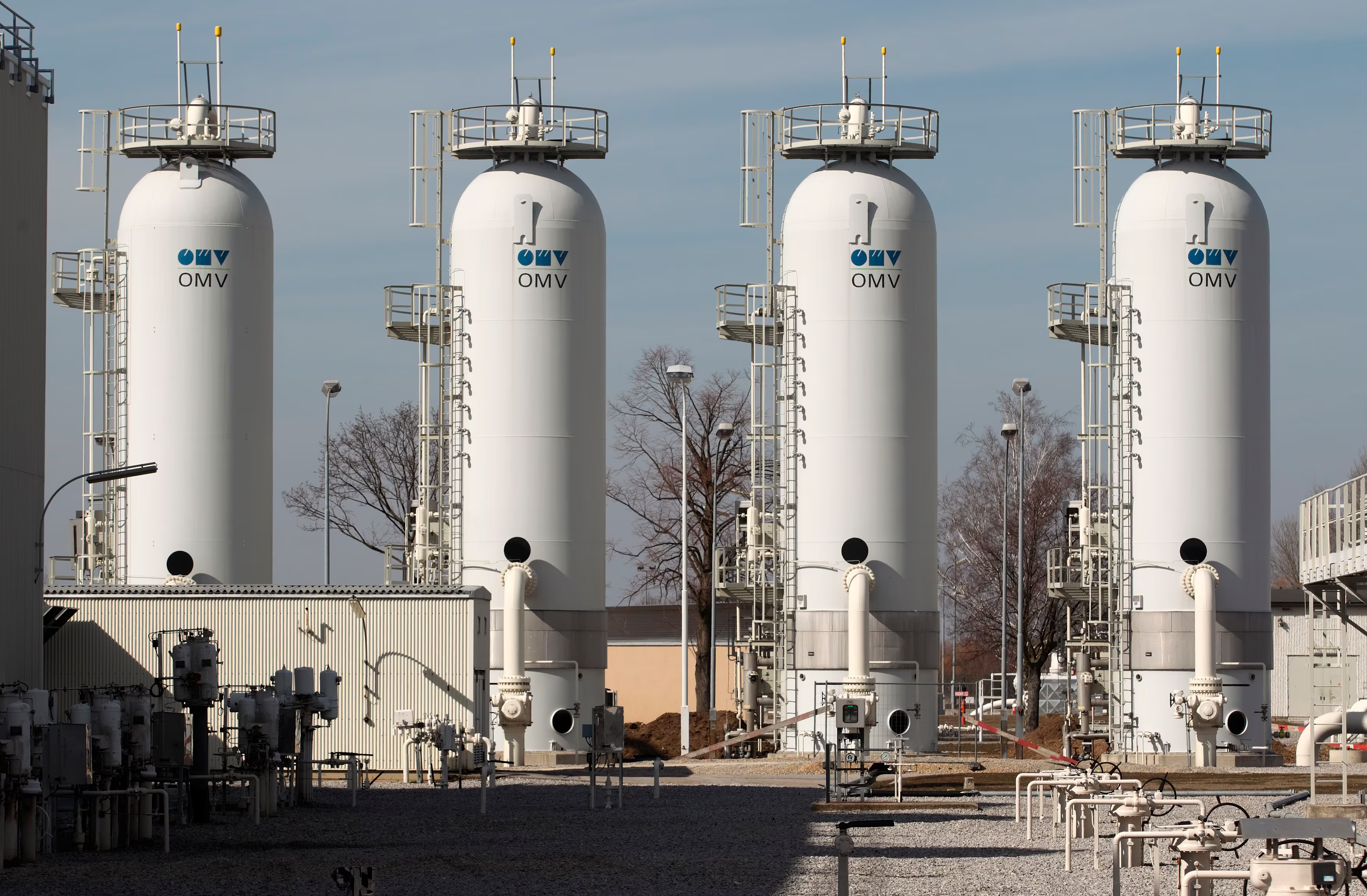Russia Halts Gas Deliveries to Austria, Marking the End of an Era in European Energy Supply
In a significant move signaling the dwindling presence of Russian gas in Europe, Moscow has informed Austria that gas deliveries will cease from Saturday. This development effectively brings an end to decades of reliance on Russian gas, a relationship that began in 1968 when Austria became the first Western European country to purchase gas from the Soviet Union.
The suspension of gas supplies comes amidst a contractual dispute between Russian energy giant Gazprom and Austria’s OMV. In a notice published on the Central European Gas Hub platform, OMV confirmed that Gazprom had announced the stoppage. While Gazprom declined to comment, the decision is seen as part of a broader shift in European energy dynamics following Russia’s 2022 invasion of Ukraine.
Russia once dominated Europe’s energy market, supplying over 40% of the European Union’s natural gas needs before the war in Ukraine. Today, its gas flows to the continent are limited to Hungary and Slovakia. Austria, which still relied heavily on Russian gas, will now need to fully pivot to alternative energy sources.
Germany, Europe’s largest economy, faced a similar scenario in 2022 when the Nord Stream pipelines were sabotaged. While Austria has historically been a key recipient of Russian gas, OMV assured customers that alternative supply routes via Germany, Italy, and the Netherlands are in place.

The halt in Russian gas supplies comes at a challenging time for Austria. The country is grappling with an energy crisis that has already caused a significant reduction in gas demand and negatively impacted its manufacturing sector. Analysts from Eurointelligence noted that Austria’s economy remains in recession, exacerbated by Germany’s economic slowdown.
Austria’s reliance on Russian gas was significant, with the transit route meeting 65% of the gas demand in Austria and its eastern neighbors, Hungary and Slovakia, according to the International Energy Agency. The loss of Russian gas could worsen the energy crunch, but OMV has expressed confidence in its ability to meet domestic energy needs through alternative sources.
READ ALSO: Nigeria and India Strengthen Ties with Three Key Memoranda of Understanding
The cessation of Russian gas to Austria highlights the shifting geopolitical landscape of energy in Europe. EU Energy Commissioner Kadri Simson emphasized that the bloc has access to alternative energy supplies, reducing its dependence on Russian gas.
Ukraine, which continues to serve as a transit route for limited Russian gas shipments, has indicated it will not extend the transit agreement beyond 2025. This decision could further disrupt supply to countries like Austria and Slovakia, which still rely on the Ukrainian route.
Hungary, on the other hand, has shifted its imports to the TurkStream pipeline, which runs under the Black Sea, highlighting a diversification of supply routes, Reuters.
The announcement of the gas cutoff to Austria coincided with a phone call between Russian President Vladimir Putin and German Chancellor Olaf Scholz, marking their first direct conversation since December 2022. The Kremlin suggested that Russia remains open to energy deals with Germany if Berlin shows interest, emphasizing that Moscow has always fulfilled its contractual obligations in the energy sector.
This overture, however, is unlikely to lead to a revival of Russian gas imports to Germany, as Europe continues to pivot away from Russian energy in response to the war in Ukraine.

Russia’s gas exports to Europe in 2023 amounted to about 15 billion cubic meters (bcm) via Ukraine—only 8% of peak flows recorded in 2018-2019. This marks a dramatic decline in Russian influence over Europe’s energy market.
READ ALSO: India’s Forex Reserves Decline to Three-Month Low Amid Rupee Volatility
Austria’s ability to adapt to the loss of Russian gas will depend on the successful implementation of alternative energy strategies. While OMV has laid the groundwork for diversification, the economic and energy challenges facing Austria underscore the broader implications of Europe’s energy transformation.
The cessation of Russian gas deliveries to Austria represents not just the end of a decades-long energy partnership but also a pivotal moment in Europe’s efforts to reduce dependence on Moscow. While Austria and other affected nations work to secure alternative supplies, the broader shift underscores the EU’s commitment to energy diversification and resilience in the face of geopolitical challenges.
This transition, though fraught with challenges, signals a future where European nations are less reliant on Russian energy—a critical step toward long-term energy security and independence.

